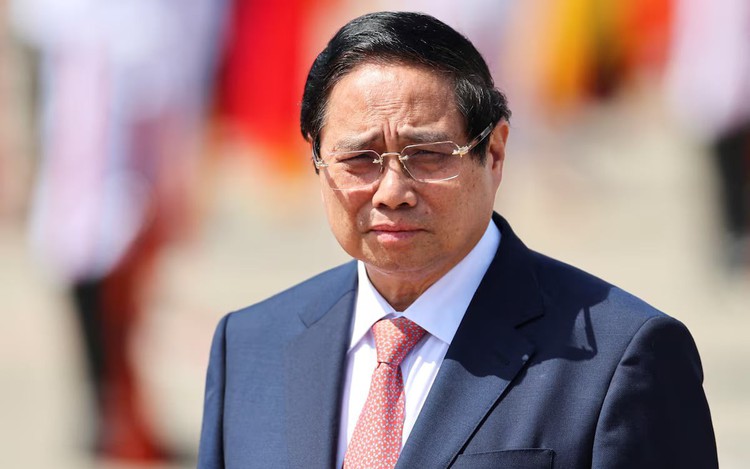
Vietnamese Prime Minister Pham Minh Chinh waits for Chinese President Xi Jinping to arrive before his departure, following his visit to Hanoi at Noi Bai International Airport in Vietnam, April 15, 2025. Photo: Reuters
In a recent address, Vietnamese Prime Minister Pham Minh Chinh highlighted a critical issue affecting many citizens: housing affordability. “Many people are in need of housing, but they can’t afford it because of high prices,” he stated during a meeting in Hanoi. This recognition of the growing housing crisis is crucial as prices continue to escalate, particularly in major urban areas.
The cost of living, especially in cities like Hanoi and Ho Chi Minh City, has surged significantly. Latest government data reveals that apartment prices have jumped by 5.6% just this year, reaching an average of 80 million dong (approximately $3,028) per square meter. This trend poses a significant challenge for many families, especially when juxtaposed with the average annual salary of Vietnamese workers, which sits at around 98.4 million dong.
Many economists are raising alarms about potential asset bubbles within the property market. As Chinh remarked, the government’s push for increased credit in the economy has fueled rapid growth, but it also necessitates careful management to mitigate risks associated with overvaluation in real estate.
In response to the growing concerns, Prime Minister Chinh unveiled a series of measures aimed at addressing the housing crisis. He vowed to cut costs and streamline administrative procedures for real estate developers. Additionally, he directed the central bank to devise policies that would allow for real estate loans with “reasonable interest rates.” This dual approach of reducing barriers for developers while making financing more accessible is pivotal for reviving the housing market.
Another vital element of Chinh’s plan involves the acceleration of social housing projects, which are intended to support low-income residents. These initiatives are not only funded by affordable loans but also represent a strategic move towards ensuring that everyone has access to safe and secure living conditions. “Properly implementing housing policies and developing the property market will contribute to the country’s rapid and sustainable economic growth, while keeping inflation under control,” Chinh emphasized.
The Vietnamese government aims to maintain inflation within a specific range of 4.5%-5.0% for the year. Recent statistics indicate that consumer prices rose by 3.24% in August compared to the previous year. Notably, costs related to renting and construction materials spiked by 6.99%, pointing to the broader implications of rising housing costs.
Chinh also noted a recent uptick in bank lending targeted at the property market. He expressed confidence that non-performing loans remain under control, which is reassuring for both investors and potential homeowners. The government’s proactive stance in managing financial dynamics can play a crucial role in stabilizing the housing market amidst these economic challenges.
This multi-faceted strategy reflects a deeper understanding of the intricate relationship between housing availability and economic stability. As Vietnam continues to navigate the complexities of rapid urbanization and economic growth, these measures may be key to fostering a more equitable and sustainable housing environment.